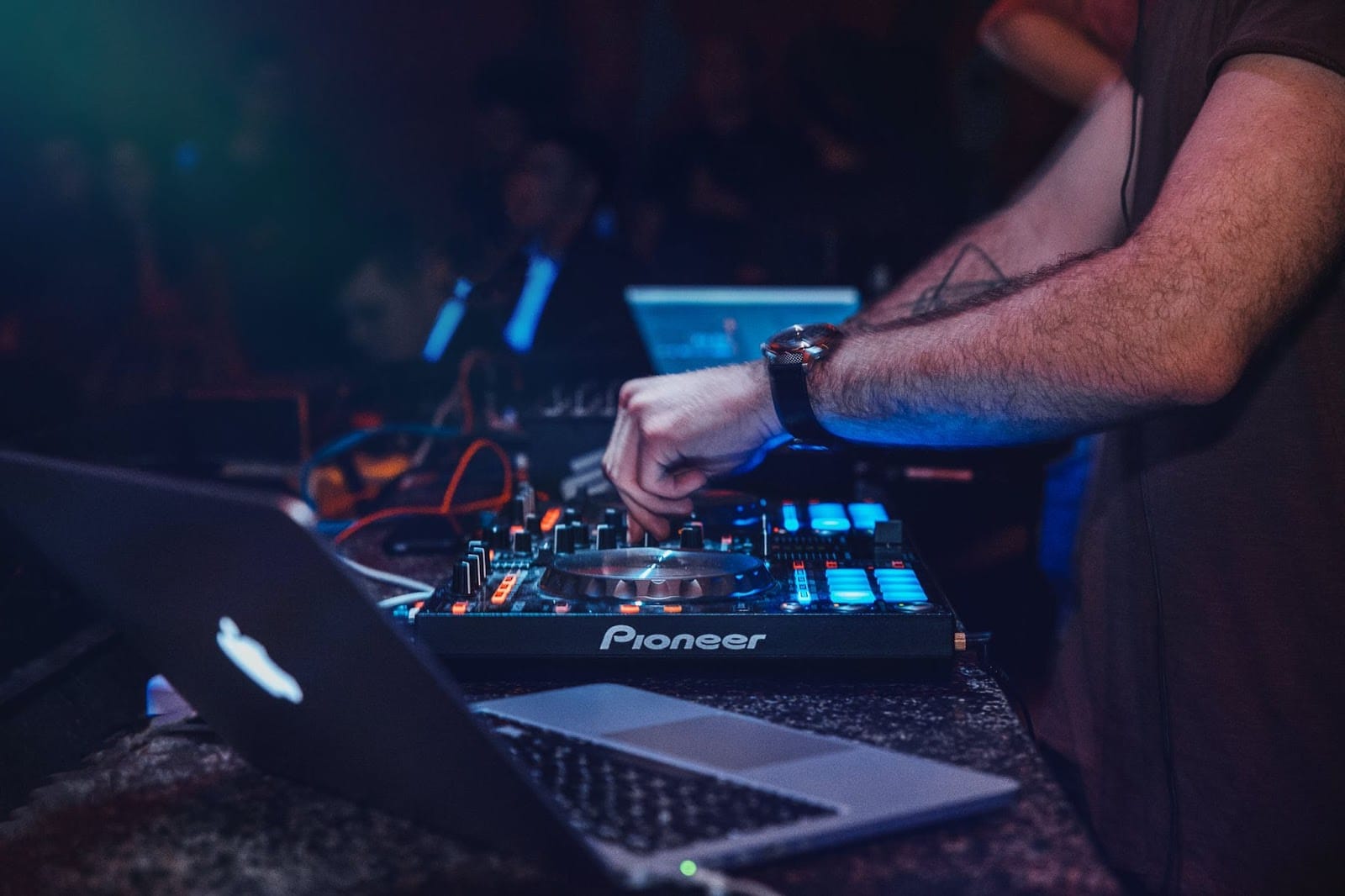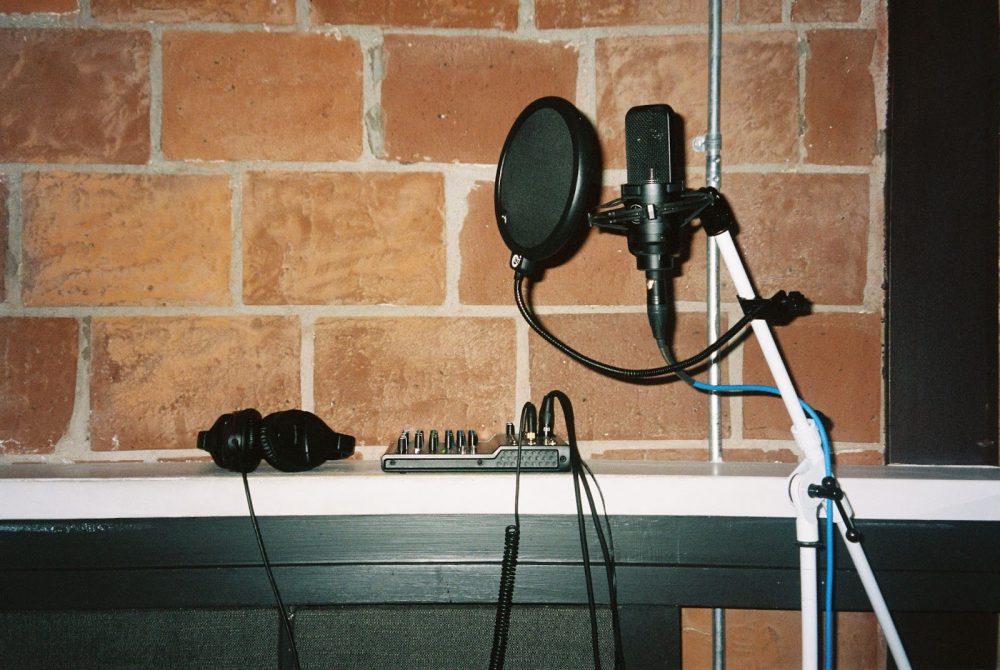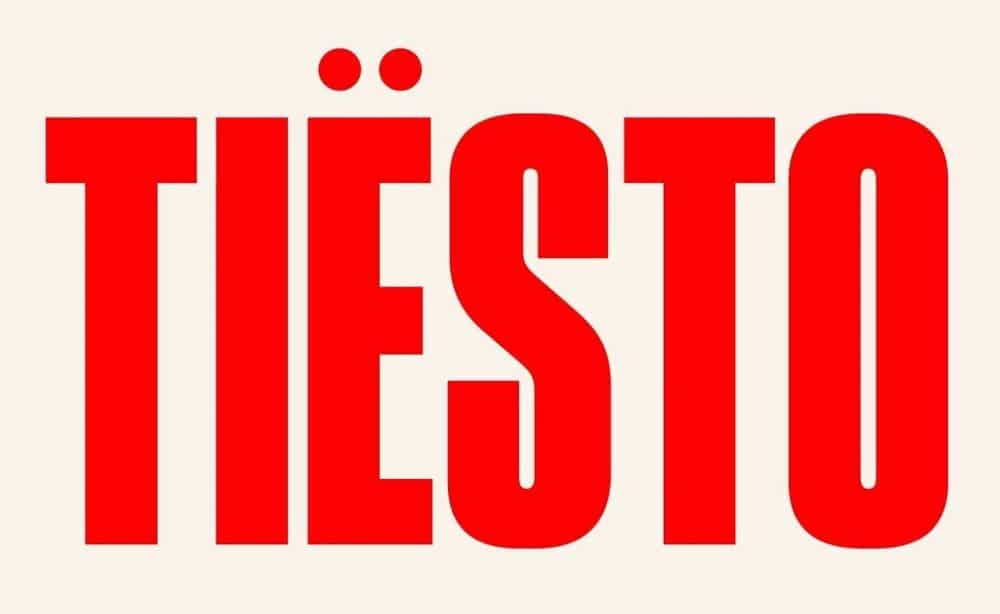
How to Start a DJ Business: The Business Side of Things

So, you’ve got great taste in music and love building playlists for parties. Maybe you’ve even had a few successful DJ gigs and want to keep the momentum going. Now, it’s time to start your DJ business.
As a DJ, you can turn your passion into your livelihood and never have to “work” another day. We’ve got your back, no matter your story or how you got into DJing. Today’s guide teaches you how to start a DJ business from scratch.
Let’s get those turntables spinning.
Learn how to start a freelance business in your field:
Freelance Mechanic | Freelance Electrician | Freelance Engineer | Freelance Accountant | Freelance Barber | Freelance Hair Stylist | Freelance Software Developer | Freelance Content Strategist | Freelance Physical Therapist | Freelance Bartender | Freelance Chef | Freelance Medical Assistant | Freelance CycleBar Instructor | Freelance CrossFit Coach | Freelance Content Writer | Freelance Piano Tutor | Freelance Waxing | Freelance Audio Editor | Freelance Data Analyst | Freelance Photographer | Freelance Tutor | Freelance Videographer | Freelance Welder | Freelance Teacher | Freelance Video Editor | Freelance Real Estate Agent | Freelance UX Designer | Freelance Copy Editor | Freelance Administrative Assistant | Freelance Social Media Manager | Freelance Carpenter | Freelance Illustrator | Freelance Copywriter | Freelance Personal Trainer | Freelance Grant Writer
1. Outline Your Goals
Any successful business starts with a solid foundation. First, you need to know your goals and what you’re working towards.
This means you have to answer some essential questions:
- What kind of DJ do you want to be?
- How do you want to play music?
- Who is your target market?
- Who are your competitors?
When you have answers to these questions, you can outline a clear-cut plan and set milestones to reach along the way.
Now, let’s talk about how to answer those questions.
What Type of DJ Do You Want to Become?
First, you must decide what type of disc jockey you want to be and what music you want to play.
Do you want to be a worldwide touring DJ like Martin Garrix or Tiesto?
Or maybe you only want to work as a club DJ for local nightclubs.
What about working as a wedding DJ or starting a mobile DJ business?
Do you want to go full-time or part-time?
Narrowing in on a niche is essential for branding and marketing yourself. It makes it easier to find clients because they understand you specialize in a specific type of DJ service.
Here are some other niches, events, and types of venues to consider:
- Restaurants and bars
- Graduations
- Private parties
- Birthday parties
- Radio
- Karaoke
Determine Your Target Market
If you’re having trouble choosing a niche, think about who your ideal customer is.
Are they nightclub or lounge owners?
Soon-to-be married couples?
Think about what problem they need help with and how you can solve it. Why should they hire you instead of all the other DJs in your area?
Next, think about your target audience. Who do you want to perform for? Is it college kids? Young adults?
Once you determine your DJ niche and target market, you can finally research your competition.
Research Your Competition
Go online and look for DJs who are already doing what you want to do. This way, you can see what’s working and what you can improve.
Fear your competition but look to them as sources of inspiration. Learning about your competitors helps you understand why clients want to hire you.
Find successful DJs in your target niche and note who their clients are, how often they perform, and how they market themselves.
2. Get All the Necessary DJ Equipment

To become a professional DJ, you need the right DJ gear.
What Type of Equipment Do DJs Need?
Let’s discuss a few essential items to start your small business.
DJ Controller
An all-in-one DJ controller is your best friend as an up-and-coming professional DJ. You won’t have to haul multiple decks and a mixer with one of these in your stack.
A DJ controller offers flexibility and portability as you travel to different gigs. We recommend investing in the best model you can afford, as showing up with a high-quality controller makes you look like a true professional.
Furthermore, expensive controllers tend to last longer than cheaper ones, so you won’t have to replace or upgrade them for years.
Amps and Speakers
While many venues have sound systems installed and ready to use, you still need to be prepared if they don’t. The last thing you want is to attend a gig where the client doesn’t have speakers.
How would you play your tunes?
You’ll need an amplifier that connects your DJ controller to your speaker, and we recommend buying a pair of high-quality stereo speakers.
Microphones
You want to arrive at your venue with a microphone. Whether you’re comfortable making announcements, microphones are a great way to show off your personality and bring more energy and vibrance to the crowd. The client may also want to speak during the event. Microphones are must-have items at wedding receptions and ceremonial events where people give a toast and celebrate with each other.
Spare Cables
No matter how durable and expensive your cables are, it’s crucial to have spare sets. You never know what’ll happen to your equipment while traveling and setting up, so having extra lines can save your gig.
Want to Lease Your Equipment?
Going into debt to start your DJ company can add unnecessary stress and pressure, so consider leasing equipment if high-quality tools are out of your budget. Research options online and in your local area. Then, choose the provider who offers the best rates on the best equipment.
3. Come Up With Your DJ Name
While many DJs use their real name for their DJ name, many DJs use a fake name. Your name is a vital branding tool affecting public perception, so choose it carefully.
How to Pick the Perfect DJ Name
Picking your DJ name is a fun and creative part of starting your DJ business. However, it’s also significant for branding and marketing purposes. For example, global icon Calvin Harris’s real name is Adam Wiles. This shows how important a DJ’s name is. “Calvin Harris,” which seems like his real name, has a unique ring and tone.
Here are a few key questions to consider when picking your DJ name:
- Is the website domain available?
- Are the social media handles available?
- Will your DJ name help you stand out among competitors?
Although a DJ name won’t make or break your career, it can help if it’s memorable, catchy, and unique.
4. Design Your DJ Logo
The next step is to design your DJ logo. You can use your logo as the profile picture for your social media accounts, on your website, and in the footer of your emails. A logo shows professionalism and helps people remember who you are. If you don’t have graphic design experience, you can hire an illustrator on Upwork or Fiverr.
Check out these professional DJs’ logos for inspiration:
Calvin Harris

Photo via Wikimedia
Tiesto

Photo via Tiesto Facebook
Martin Garrix

Photo via Wikipedia
Alesso

Photo via Wikimedia
5. Set Up the Business Side of Your Company
With the creative side out of the way and your DJ goals set in stone, it’s time to set up the business side. As an independent business owner, you need processes for collecting invoices, paying taxes, and maintaining your company’s financial well-being.
Although you may think DJing is all about partying and “living the life,” this isn’t the case — successful DJs are incredibly hardworking and business-savvy.
Apply for a Business License
You’ll need to research local laws and regulations to learn how to register as a business in your area. However, it is usually a simple and affordable process.
Although you won’t earn massive amounts of money right away, a business license allows you to grow in the future.
Sole Proprietorship or LLC?
You can choose between running a sole proprietorship or a limited liability company (LLC).
A sole proprietorship is an unincorporated business run by a single person. An LLC exists separately from its owners and has incorporation startup costs.
LLCs offer a few key benefits that sole proprietorships don’t.
For one, members of an LLC are not responsible for business debts and liabilities — the LLC is. This is called liability protection.
If your LLC goes bankrupt, your financier can’t go after your assets. However, if you have a sole proprietorship, they can.
Another issue with sole proprietorships is mixing personal and business funds, making tax season challenging. If you choose to open a sole proprietorship, we recommend keeping a business bank account dedicated to your DJ business.
Regarding taxes, sole proprietorships and LLCs have the same tax implications.
See also: Filing Taxes When You’re Self-Employed (Our Step-by-Step Guide)
Obtain Business Insurance
You should consider getting some form of insurance, usually public liability, to protect yourself and your DJ business in case anything goes wrong.
Equipment insurance is also valuable in case your equipment gets damaged or stolen.
Do You Need Permits, Licenses, or Insurance?
We recommend checking with your local state and government agencies to see if you need licenses or permits to operate your DJ business legally.
Learn About Taxes
Tax education is crucial to running a successful business. You can incur serious debt if you pay less than your tax liability.
This is why keeping diligent records of your income and owed taxes is essential. In addition, as we discussed above, it’s wise to open a separate business account to keep your business and personal finances apart.
How to Manage Your Finances
If you want to learn how to manage your finances, sign up for Selfgood and take advantage of our financial coaching services.
With Selfgood, you’re eligible for unlimited calls with a financial counselor who can offer guidance on setting up your business and keeping your finances crystal clean.
Selfgood offers other services, too.
- Legal assistance
- Supplemental health insurance
- Student loan debt relief and financial wellness program
- Discounts at Office Depot, AVIS, Lenovo, and many more brands
- Mental health consultations
- Discounted prescriptions
- Vision care
As a business owner, you don’t receive the benefits of working for a big corporation. Selfgood is your all-in-one benefits provider and gives you peace of mind as you venture into your DJ career.
Sign up for Selfgood to enjoy our freelancer benefits!
6. Build Your Website and Set Up Your Social Media Accounts
The next step is building your website and setting up your social media accounts. Since you’ve already chosen your DJ name, register a website and social media accounts using your DJ alias.
You should post your music collection, library, remixes, playlists, and other music-related content on your social media accounts. This lets clients see if you’re a good fit for their gig.
7. Create Your DJ Business Plan
Now, you’re ready to create your DJ business plan.
First, you must decide how much you want to charge for your services and how you will receive payment from your clients.
Keep Pricing Transparent
You can choose to offer hourly pricing or a specific gig rate. The average rate of a DJ is around $100 an hour. However, it can vary depending on your specialty and the type of events where you perform.
Look at how much your competitors charge. Then, choose your pricing structure based on your skill set and expertise.
Whatever you decide to charge, keep your pricing as transparent as possible. You can display your pricing on your website or send it to potential clients via email or text.
Related: How to Answer the Question “How Much Do You Charge?”
Contracts Are Essential
You’ll need to create a contract to send to potential customers to confirm the gig. If a client pulls out, you’ll have a contingency plan in the form of a non-refundable deposit.
Contracts may also include cutoff times. For instance, if a client cancels a gig within 24 hours of the show, you still receive the entire payment since it may be difficult to book another time.
Subscribe To SelfGood
Get up to date perks and Gigworker news. Easy. Simply. SelfGood. Subscribe.
8. Start Looking for Clients
The final step is to look for clients so you can start booking gigs and earning revenue.
How to Find Your DJ Clients
Finding clients may be challenging for a new DJ. The best way to find clients is through networking, referrals, and word of mouth.
Here are some tips to help you find more clients for your new business:
Keep Your Contacts Organized
As an entrepreneur, the organization is everything. You’ll need to keep track of everyone you’re in contact with and offer quick responses.
Network, Network, Network
You must put yourself out there and let the world know you’re ready to perform at their venue or event. We recommend starting with family and friends and asking them if they know anybody who owns a club or has an event coming up that needs a DJ.
Once you’ve exhausted this avenue, you can look through local Facebook groups in your niche.
Consider getting business cards. You can hand them out at your events to let guests know they can call you for their events.
Leverage Social Media
Leveraging social media is an effective way to find clients. First, look for nearby venues you’re interested in DJing, then reach out on social media to introduce yourself and ask if they have any open slots.
Your social media pages should have videos showcasing your personality and your taste in music.
Conclusion
Once you book a few gigs and show the world who you are as a DJ, more opportunities will appear. You’ll have more footage to show on your social media pages and more referrals to send to potential customers.
However, as an independent business owner, you must protect yourself and your financial health. Selfgood helps small business owners like yourself get discounted access to financial, legal, and healthcare resources.
Learn more about Selfgood here!





